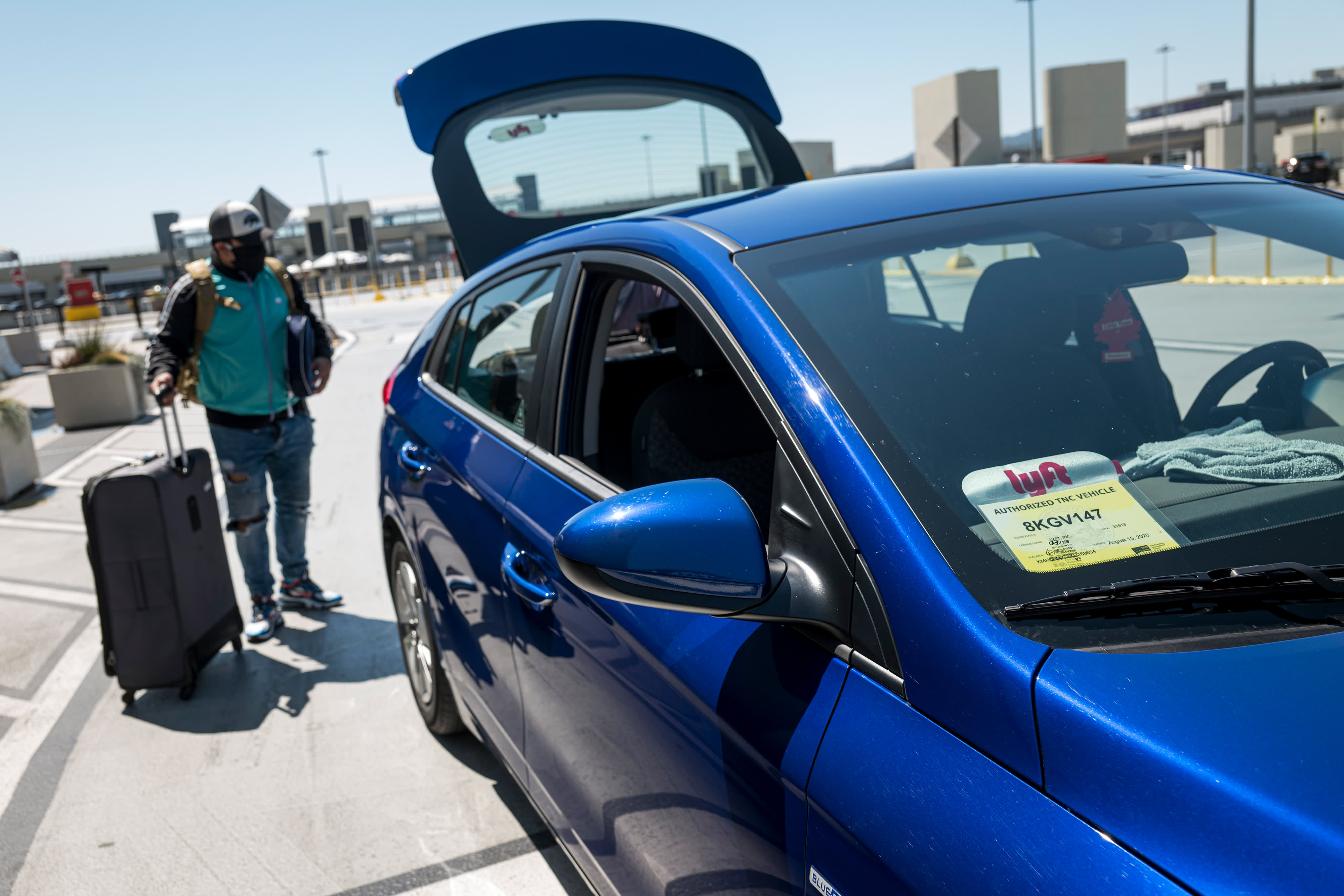A traveler wearing a protective mask waits to put a suitcase in the back of ride-sharing car displaying Lyft signage at San Francisco International Airport on Monday, May 4, 2020.
Paul Morris | Bloomberg via Getty Images
Lyft just reported second-quarter earnings including a 61% revenue drop versus the same period last year, but a glimmer of hope for its core ride-hailing business with monthly rides increasing 78% in July, as compared to April.
Here’s how the company did versus Wall Street expectations for the period ending June 30, 2020:
- Loss per share: 86 cents, adjusted vs. an expected 99 cents, adjusted, according to analysts surveyed by Refinitiv.
- Revenue: $339 million, vs. $337 million expected per Refinitiv.
Shares rose 5% on the news.
Analysts’ estimates ranged from losses of 50 cents per share to $1.15 per share, adjusted, for Lyft, and $269.5 million to $572.7 million in revenue for the quarter.
Lyft makes money through ride-hailing, scooter- and bike-sharing, and its relatively new vehicle rentals business. Unlike its primary competitor, Uber, the company does not have a food delivery, freight or investments and operations overseas to help it make up for losses in travel and transportation.
To try to make drivers and rides feel comfortable with ride-hailing again, despite the persistence of Covid-19 in the U.S, Lyft made it a requirement for riders and drivers to wear a mask during trips starting in May, and after that began to distribute masks and hand sanitizer to drivers. Last month, the company announced that it was distributing tens of thousands of vehicle partition shields to its top drivers as a protection against the novel coronavirus. Now, the company also sells its protective barriers to drivers who want them.
But California state regulators want Lyft to do even more for drivers — treat them like employees, not freelancers.
On Monday, a California court issued a preliminary injunction that requires both Uber and Lyft to classify drivers as full employees with benefits in the state, at least pending further action by the court. Doing this would mean drivers would be eligible for benefits like health insurance, paid sick leave and more. The ride-hailing companies requested a brief stay during the appeals process, and now have until August 20 to make this change.
Uber CEO Dara Khosrowshahi said in an interview with MSNBC Wednesday that the company might have to stop service in California if the court doesn’t overturn the ruling.
Lyft and Uber are facing multiple lawsuits in the U.S. over alleged misclassification of drivers and wage theft. They have previously treated drivers strictly as independent contractors. Like others in the “gig economy,” Uber and Lyft have argued that workers want freedom and flexibility that they cannot get if they are classified as employees.
Critics including UC Hastings professor of employment law, Veena Dubal, say that a desire for flexibility should not to be confused with a desire to remain an independent contractor. Interviewing drivers, Dubal found that they overwhelmingly wanted employee benefits, even as they feared how companies (including Uber, Lyft and others) might behave as employers.
This story is developing.
